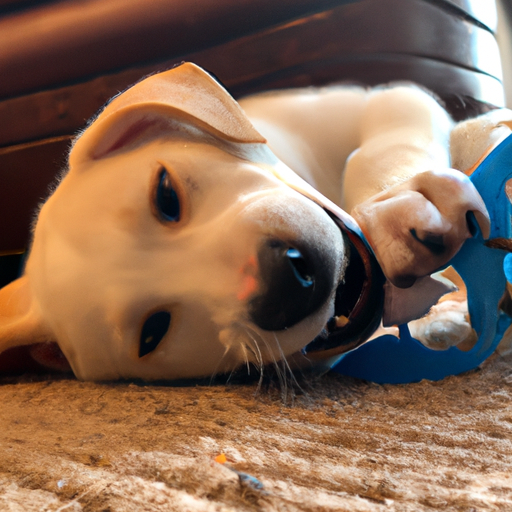Understanding Your Furry Friend’s Dental Development
Just like humans, dogs too undergo a process of dental development. You, as the caregiver, may have noticed your puppy chewing on everything in sight, or perhaps you’ve discovered tiny teeth scattered around your home. It’s all a part of their growth.
Dogs have two sets of teeth throughout their lives:
- Deciduous teeth (also known as baby or puppy teeth)
- Permanent teeth (also known as adult teeth)
| Type of Teeth | Number of Teeth | Age When They Appear |
|---|---|---|
| Deciduous | 28 | 2-4 weeks |
| Permanent | 42 | 3-6 months |
The Process of Puppy Teething
Just when you thought your puppy couldn’t get any more adorable, they start to teethe. This phase can be equally challenging for both you and your furry friend.
During this period, your puppy will lose their baby teeth and their new shiny adult teeth will begin to emerge. This usually starts around 3 to 4 months of age and can last until they are 6 to 7 months old.
Spotting the Signs of Teething
As a caregiver, it’s important to recognize the signs of teething in your puppy. Some common signs include:
- Increased chewing: Your puppy may be chewing more than usual.
- Loss of appetite: They may eat less due to the discomfort.
- Drooling: Some puppies may drool more when they are teething.
- Irritability: Your usually playful pup may seem a bit grumpy.
Importance of Dental Care
Remember, teething is a natural process and your pup’s discomfort will pass. However, it’s a great time to instill good dental habits. Here are some tips to ensure your dog’s dental health:
- Brush their teeth: Use a dog-friendly toothbrush and toothpaste.
- Provide chew toys: This can help alleviate teething discomfort and also keep their teeth clean.
- Regular vet check-ups: Your vet can identify any potential dental issues early.
How to Handle Teething Troubles
During teething, your puppy may experience some discomfort. Here’s what you can do to soothe them:
- Cold chew toys: Chewing on cold toys can help numb the discomfort.
- Soft foods: If your puppy is refusing food, try offering soft foods.
- Patience and comfort: Provide lots of cuddles and understanding during this challenging time.
FAQ
Q: Should I worry if my puppy is not eating well during teething?
A: It’s normal for puppies to lose their appetite during teething. If this continues for more than a couple of days, consult your vet.
Q: My puppy swallowed a baby tooth. Should I be concerned?
A: Generally, it’s not a problem if your puppy swallows a baby tooth. However, if you notice any changes in their behavior or bowel movements, contact your vet.
Q: What if my puppy’s adult teeth are growing in before the baby teeth have fallen out?
A: This can sometimes happen and it’s called retained deciduous teeth. It’s best to consult your vet if you notice this.
Q: How often should I brush my dog’s teeth?
A: Ideally, you should brush your dog’s teeth daily. However, a few times a week can also be beneficial.
Remember, understanding your puppy’s teething process can go a long way in ensuring their overall health. As their caregiver, your support during this time is crucial. So, brace yourself for this toothy journey, knowing that it will result in a healthy, happy adult dog.



